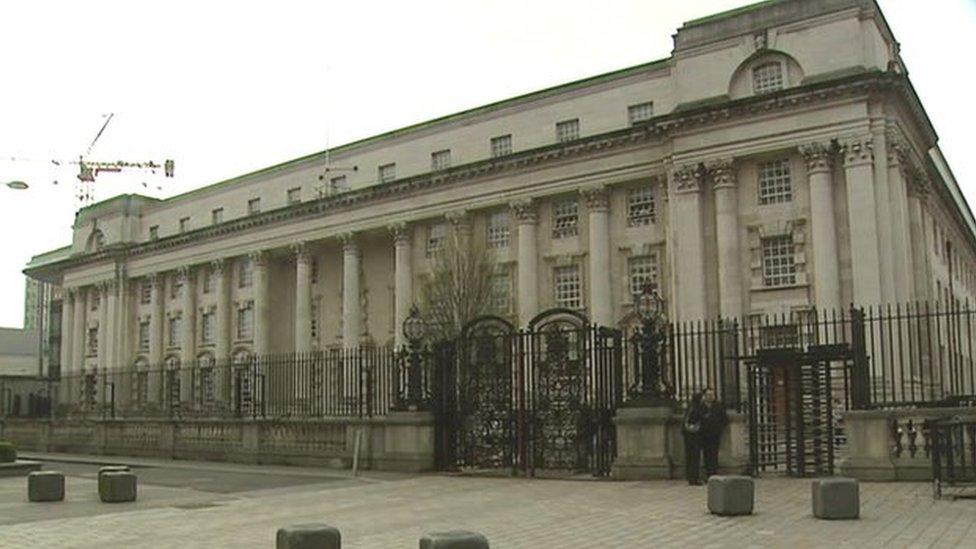Defamation: Proposed changes to the law move a step closer
- Published

Ulster Unionist Party assembly member Mike Nesbitt is sponsoring the Defamation Bill
Plans for a new defamation law in Northern Ireland have moved a stage further at Stormont.
A bill presented by Mike Nesbitt from the Ulster Unionist Party (UUP), external has passed its latest stage and will be considered again by assembly members later in March.
The bill aims to bring Northern Ireland into line with England and Wales.
However local politicians are divided on what exactly the final legislation should look like.
Parts of Mr Nesbitt's bill were amended by assembly members (MLAs) after a debate.
The UUP politician has argued that since defamation laws in Northern Ireland predate the internet, the need for reform was overwhelming.
While the bill was broadly supported by the UUP, Social Democratic and Labour Party (SDLP) and the Alliance Party, aspects of the bill were opposed by the Democratic Unionist Party (DUP), Sinn Féin and the Traditional Unionist Voice (TUV).
After a vote, a clause which would have introduced a "serious harm test " was removed from the bill.
A clause which would have created an obligation for websites was also removed.
During the assembly debate the Finance Minister Conor Murphy said there were parts of the bill he was prepared to support but others he could not.
He said his preference was for a bespoke piece of legislation rather than a bill that resembled legislation from England and Wales.
Speaking after the debate, Mr Nesbitt said: "We are now on course to get the bill through its final assembly passage before dissolution".
MLAs will meet again on Monday 14 March to consider the bill's next stage .
How does NI's law compare to the rest of the UK?
On 1 January 2014, new libel laws came into force in England and Wales aimed at giving better protection to people expressing their opinions.
Under the Defamation Act 2013 claimants have to show they have suffered "serious harm" before suing.
It also includes measures that protect scientists and academics publishing peer-reviewed material in scientific and academic journals, as well as those publishing material where they reasonably believe it is in the public interest.
The changes were not extended to Northern Ireland.
Related topics
- Published14 September 2021

- Published19 July 2016
